How to Fix Windows 10 File Sharing Not Working
File sharing is essential for many Windows 10 users, whether collaborating on projects, sharing media, or accessing files across multiple devices. However, encountering issues with file sharing can be frustrating and disruptive. If you’re facing problems with Windows 10 file sharing not working, you’re not alone.
We will walk you through the common causes of these issues and provide practical solutions to get your file sharing back on track. Whether it’s incorrect settings, missing credentials, or software conflicts, we’ve got you covered with step-by-step methods to resolve these problems efficiently.
Read on to learn how to troubleshoot and fix file-sharing issues in Windows 10 or even on your Windows 11
Reasons for Windows 10 File Sharing Not Working
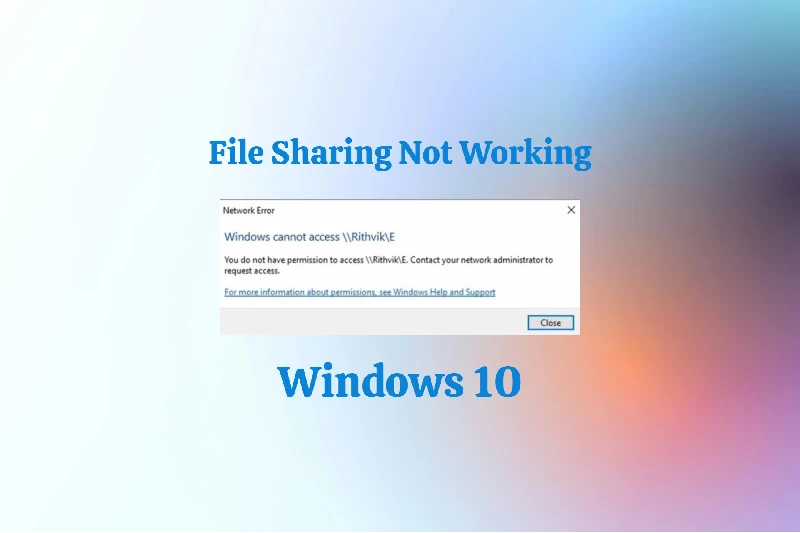
Common causes for Windows 10/11 file-sharing problems include:
- Incorrect Settings: The file-sharing settings on your device need to be corrected.
- Missing Credentials: You might need the necessary credentials to access shared files.
- Incompatibility Issues: The connection for file sharing might not be compatible with your network.
- Antivirus Interference: Antivirus software might be blocking the file-sharing process.
- SMB 1.0 Disabled: The SMB 1.0 protocol might be disabled, particularly after a Windows 10 update.
- Update Bugs: Bugs in the latest Windows update might be causing issues with file sharing.
- If you’re experiencing these problems and need a quick fix, consider using dedicated file transfer software or explore direct solutions to resolve file-sharing issues.
Regardless of the cause, it’s crucial to resolve the issue promptly. Below are effective methods you can try. Please follow the breadcrumbs ( > > > ) for a step-by-step guide to resolve this issue.
Windows 10 File Sharing Issue Fixes
Enable and Use File Sharing Properly
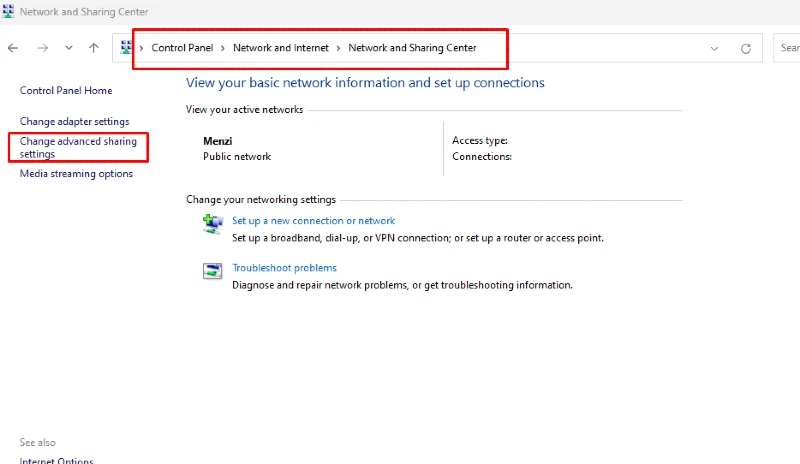
File sharing functions properly only when the sharing settings are correctly configured. Additionally, you must share your data correctly. Follow these steps to ensure both are set up correctly:
Start > Control Panel > Network and Sharing Center > Advanced sharing settings
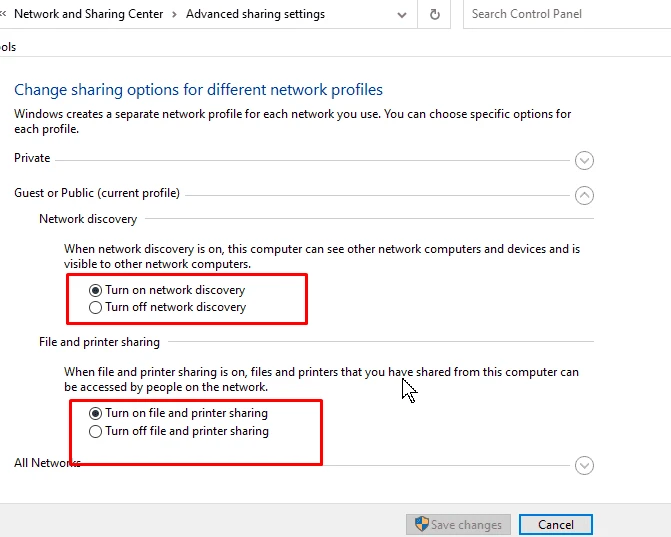
Under Private (current profile), tick the radio button, Turn on network discovery, and Turn on the file and printer sharing radio button under the Files and Printer Sharing section. Click Save Changes
Ensure the File and Printer Sharing tick box is checked under the Windows Firewall window section.
Control Panel > All Control Panel Items > Windows Firewall > Allowed apps
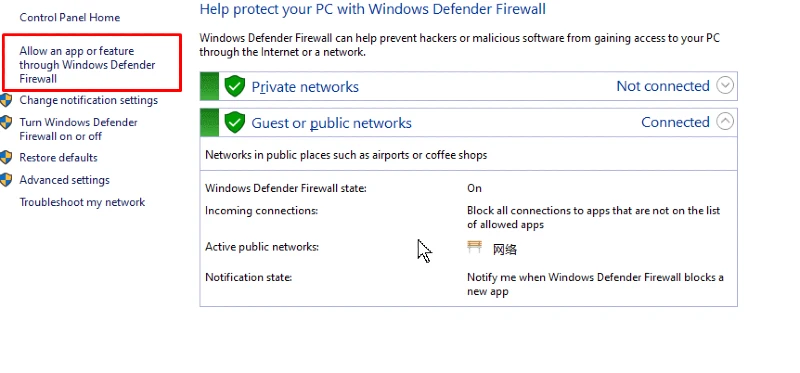
Turn Password Protection Off
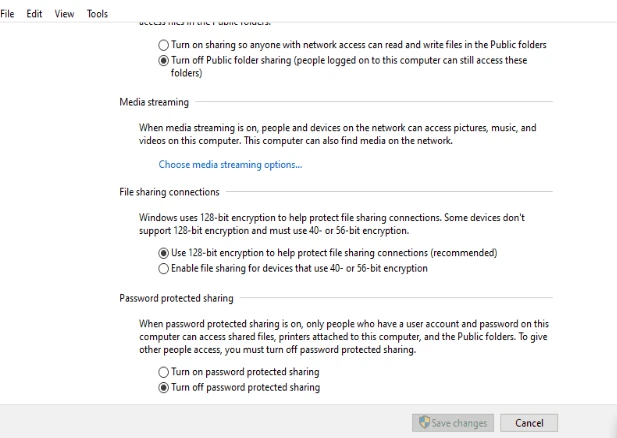
Enabling password-protected sharing can sometimes lead to file-sharing failures, requiring other users to either have a user account on their PC or know their username and password. To resolve file-sharing issues, consider disabling this feature.
Start > Control Panel > Network and Sharing Center > Change advanced sharing settings >
Under All Networks, tick the radio button, Turn off password-protected sharing > Save Changes.
Add a Windows Credential
If you cannot access a specific folder on a remote server for file sharing, adding credentials can resolve the issue. To proceed, you’ll need the remote computer or server’s network address, username, and password.
Start > Control Panel > Credentials Manager > Windows Credentials > Click the Add a Windows credential link.
Enter your computer’s IP address in the Internet or network address field, and then input the corresponding Username and Password. This should resolve the issue with file sharing.
Change File Sharing Connections

Windows uses 128-bit encryption for file-sharing security, but specific devices may only support 40—or 56-bit encryption. Adjust your sharing settings accordingly to ensure compatibility with all devices.
Control Panel > Network and Sharing Center > Change Advanced Sharing Settings > All Networks > File Sharing Connection > Make sure that the Use 128-bit encryption radio button is ticked > Save Changes.
Computer Browser Service Should be Set to Automatic
The Windows Computer Browser service allows users to browse and find shared resources on nearby computers. To ensure it’s functioning correctly, check its status in the Services.
Start button > Type services.msc next to Start button > Look for Computer Browser > Right Click to Properties > Startup Status should be in Automatic > Service Status should be Running; if it stopped, select Start > OK.
Disable IPv6
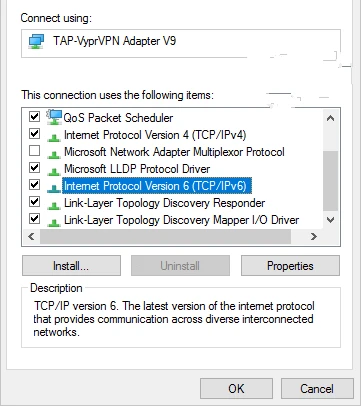
Turning off IPv6 connectivity on your system can effectively resolve issues with file sharing not working in Windows 11/10.
Press the Windows key on your keyboard together with the R key to open the Run dialogue box > type ncpa.cpl to open the Network Connections window > Under Connect Using > Look for Internet Protocol Version 6 ( TCP/IPv6 ), make sure this is unchecked> OK button.
Disable Antivirus on your PC
At times, antivirus software can hinder Windows file sharing. Try temporarily turning it off to see if this resolves the issue. Additionally, ensure your antivirus is updated to the latest version.
Enable the SMB 1.0/CIFS File Sharing Support
Microsoft has turned off the SMB1.0/CIFS setting in the latest Windows Update, but it is essential for file sharing. To resolve this, you need to enable it in Windows Features.
Control Panel > Programs and Features > Turn Windows features on or off window will appear > Tick the boxes and the boxes below SMB 1.0/CIFS File Sharing Support > Ok > Restart PC
Invest in a Third-party PC Solution
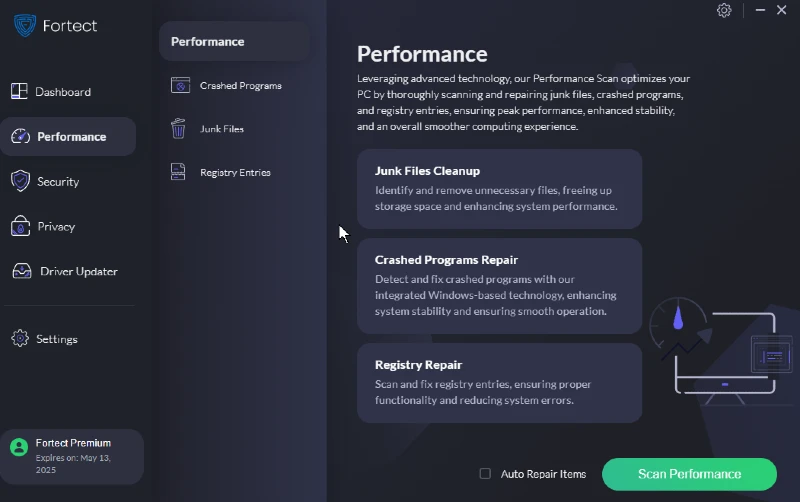
Investing in something more significant than the support you’re getting free from your Windows package is a good practice.
Consider using Fortect. This All-in-one PC solution scans your computer the moment you launch it.
If you still can’t share files after the steps above are done, Fortect will scan your entire system. During the process, it will list all the possible problems and areas to fix. You might be surprised by additional findings you will get after scans that were out of your ideas.
The scans will reveal any issues that might be causing your inability to share your file system, such as missing credentials, incompatibility issues, bugs, and all sorts of Windows issues. Once it’s done scanning, it will fix and reinstate your Windows PC to its original settings with improved performance.
Download and Install Fortect now.
Update Windows to the Latest Version
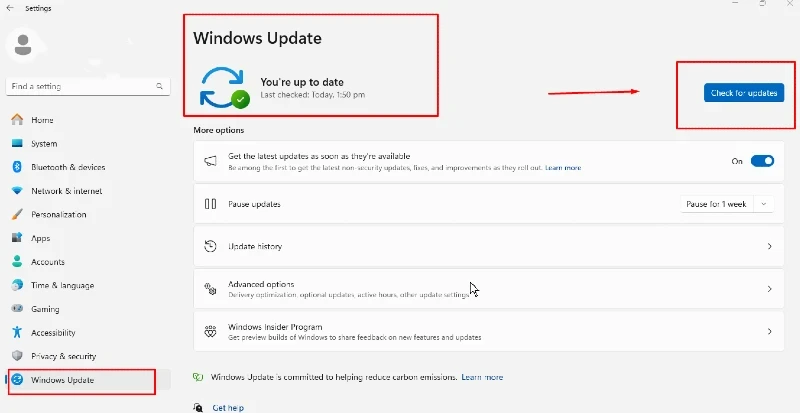
Keeping your Windows system updated to the latest version ensures you have the latest features, security patches, and improvements, which can help resolve file-sharing issues and enhance overall performance.
Start > Settings > Windows Update ( lower left section ) > Make sure you have the latest Windows update; if not, click on Check for Updates or Install Updates.




